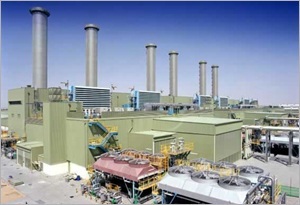Dubai is likely to decide on its multi-billon dollar energy investment strategy, including possible investments abroad, by the end of this year, a senior official of the Gulf emirates supreme energy council said recently.
Dubai lacks the large hydrocarbon resources of nearby Abu Dhabi, and has to import gas to satisfy growing energy consumption.
Integrated strategy
However, the emirate hopes by the end of this year to come up with an integrated strategy to secure new supplies and reduce demand over the next two decades - and work out how to pay the multi-billion dollar bill.
"We are now looking into a financial mechanisms for how we are going to structure it to deploy that strategy in the coming years for major projects both on the supply side but also on the demand side," Nejib Zaafrani, secretary-general of Dubai's Supreme Council of Energy, told Reuters in a joint interview with the head of the Dubai Electricity and Water Authority.
Many countries dependent on imported fuels have invested in producing countries to secure their energy needs. Dubai's US$82 billion trade and property-based economy mostly imports gas for its power plants from nearby Qatar but wants to diversify.
Economic growth
The government expects the economy to expand by 4.5 per cent this year after estimated growth of more than three per cent in 2011, as Dubai recovers from its 2009-2010 debt problems.
Energy and water
Dubai's energy and water consumption is currently growing at five and six per cent a year, respectively, above DEWA's forecast of four per cent on average for this year, DEWA's Managing Director and CEO Saeed Mohammed Al-Tayer told a news conference.
He said Dubai's energy investment strategy would likely be ready by the end of the year.
The emirate plans to diversify is energy sources away from almost total reliance on gas to include nuclear, coal and renewables by 2030.
Power assets under study
Zaafrani said that the Dubai government could be interested in some of the US$3 billion worth of power assets put on sale by Malaysia's tycoon Ananda Krishnan - which stretch from Malaysia to Egypt and include the UAE.
"It's under study, but this is being considered as one of the options," he said
Krishnan, Malaysia's second-richest man, recently put his entire power portfolio of about a dozen power plants up for sale.
The power assets sale has so far attracted 12 bids, with Saudi Water & Electricity Co submitting the top bid of 10.85 billion ringgit (US$3.60 billion).
"A huge potential in the business investment in the energy sector is coming up in Dubai and that is from local, regional and global. And that's because we have a got a very well structured long term strategy," Zaafrani said.






